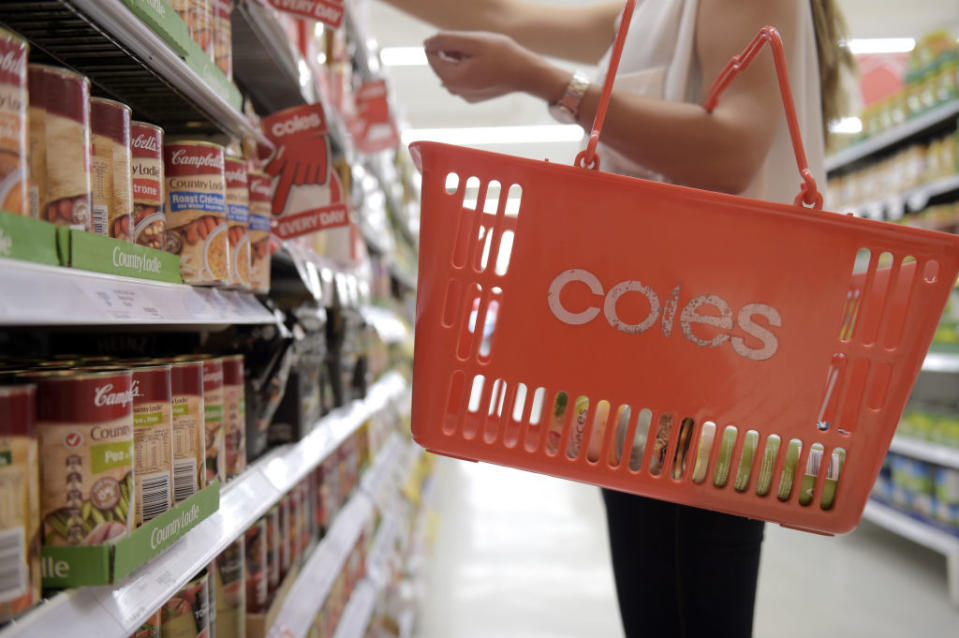Is Coles losing the Aussie supermarket war?

Coles’ supermarket sales slowed during the run-up to Christmas, while the newly demerged retailer’s first-half profit slipped 29 per cent to $381 million as restructuring costs weighed on the balance sheet.
The company’s first interim report since its spin-off from Wesfarmers showed a 2.0 per cent lift in half-year revenue to $20.35 billion, largely due to a 3.1 per cent growth in supermarket sales to $15.72 billion, boosted by the “Little Shop” collectibles campaign.
But the good news was short lived as sales slowed towards the close of 2018.
When including $357 million interim profit from the Wesfarmers-owned Kmart, Target and Officeworks, Coles’ first-half net result fell by just 13 per cent.
Shareholders were seemingly unimpressed by the supermarket’s continuing operations, with Coles shares dipping by as much as 3.3 per cent to $12.18 on Tuesday, compared to the $12.49 listing price in November.
Million-dollar survival plan
The Australian supermarket war has been tough on the new independent retailer and Coles will have to fight hard to ensure each of its 816 supermarkets continues making money.
How? Robots.
In January, Coles announced that it plans to spend about $950 million over six years in order to update the company’s supply chain following its demerger from Wesfarmers in November.
But it’s come as tough news for workers who will find their jobs replaced by machines in five new automated warehouses.
Coles has budgeted $146 million to cover the costs associated with the change, including redundancies.
Milk price war
Just yesterday, Coles announced it would not to bow to public pressure and follow Woolworths’ lead and scrap their $1-a-litre-milk range.
Woolworths raised the price of its supermarket branded milk by 10c per litre on the back of years of cries and pleas from the struggling dairy farming industry.
In a statement to Yahoo7 News, the supermarket giant said they had been “exploring additional options in relation to how to best support Australia’s hard working farmers”, but stopped short of promising any price changes.
Addressing the decision to keep its $1-a-litre milk range, chief executive Steven Cain cited the cost of living pressures for customers.
“We are one of the main supporter of farmers… but it is important we don’t disadvantage Coles’ customers,” he said.
“All milk brands should be covered and all retailers should participate (in lifting prices)… If that happens, we’d be very happy to participate in that scheme.”
Make your money work with Yahoo Finance’s daily newsletter. Sign up here and stay on top of the latest money, news and tech news.
Now read: 3 ways to prepare for a economic downturn
Now read: Here’s what really fuelled Australia’s property boom
Now read: Approvals for foreign investment in Australia’s housing market plunge again


